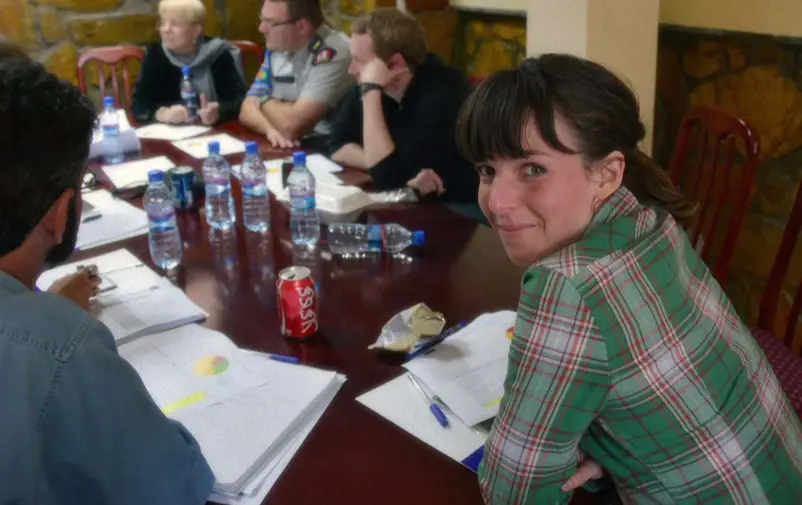
The 1325 Scholarship was established in memory of gender equality expert and peacebuilder Zaida Catalán.
The decision to conclude missions in their current form is in line with the Swedish government’s direction to reduce the number of countries where Sweden engages in bilateral development cooperation while increasing support in other areas, particularly Ukraine.
The situation in the countries where FBA is now ending its missions varies, and the conditions for peacebuilding are largely influenced by their political developments. Where possible, FBA has worked to phase out its role over an extended period to enable partner organizations to take over operations.
In Mali, FBA has been active since 2016, contributing to set goals by supporting dialogue and reconciliation as well as women’s participation in the peace process. However, the conditions for working in the country have changed radically in recent years, partly due to two military coups.
– Despite the challenging situation with Sweden’s rapid withdrawal from Mali, FBA is concluding its mission in a determined and responsible manner. The focus has been on creating favorable conditions for the networks, processes, and groups supported by FBA to remain active over time. One example is the creation of spaces for organizations active in women, peace, and security to network with international actors and embassies. At the same time, FBA will continue its mission in West Africa under the regional strategy for Africa, and there is hope that lessons learned in Mali may contribute to regional development that positively impacts Mali. Above all, we have developed an understanding of the region and the conflict dynamics, which is valuable in our regional work, explains Maria Oredsson, Deputy Head of FBA’s Department for Bilateral and Regional Cooperation.
In Liberia, FBA began its work as early as 2006, focusing on issues such as gender equality and security sector reform. In 2016, the strategy-driven operations started in the country, yielding results including a more democratically governed security sector and conflict-prevention dialogues at the local level through young peacebuilders.
In Myanmar, FBA has achieved peacebuilding results in cooperation with other Swedish actors active in the country. However, with the current military regime in power, it has become increasingly difficult in recent years to address certain issues, such as the rule of law.
– Liberia faces its challenges, but we still see a more stable path toward peace in the country today. Thanks to an early decision on phasing out, we are optimistic about fully transferring responsibility for the continued work to our partners in the country and other Swedish actors. As for Myanmar, we unfortunately see a very negative development in terms of human rights and the rule of law. However, the pro-democracy movement maintains its strength despite limited resources and reduced external support.
FBA’s country-specific missions in Iraq and Palestine will also conclude in 2025. These countries will instead fall under the Swedish government’s new regional strategy for development cooperation with the Middle East and North Africa.
– From our perspective, regional strategies, such as the ones for Eastern Europe or the Middle East and North Africa, have advantages because they allow us to be flexible when circumstances are fluid. Considering the current developments in the Middle East, it is difficult to establish long-term plans if we were tied exclusively to a single country, explains Maria Oredsson.
MORE FROM HOME
Are you a young peacebuilder at the beginning of your career with a strong commitment to women, peace and security? Do you have experience working in this field in the Democratic Republic of Congo or Afghanistan and want to take your commitment to the next level? Then you have the opportunity to apply for the 1325 scholarship for 2026.
2025-11-06 15:30FBA has both increased and adapted its work in Ukraine in the wake of Russia's invasion.
FBA in UkraineKlara Grenhagen works as a specialist at FBA's Africa unit with a focus on dialogue, reconciliation and peace processes.
More about our expertsFBA is part of Sweden’s development aid within the area of peace and security
Read more about the countries where we work